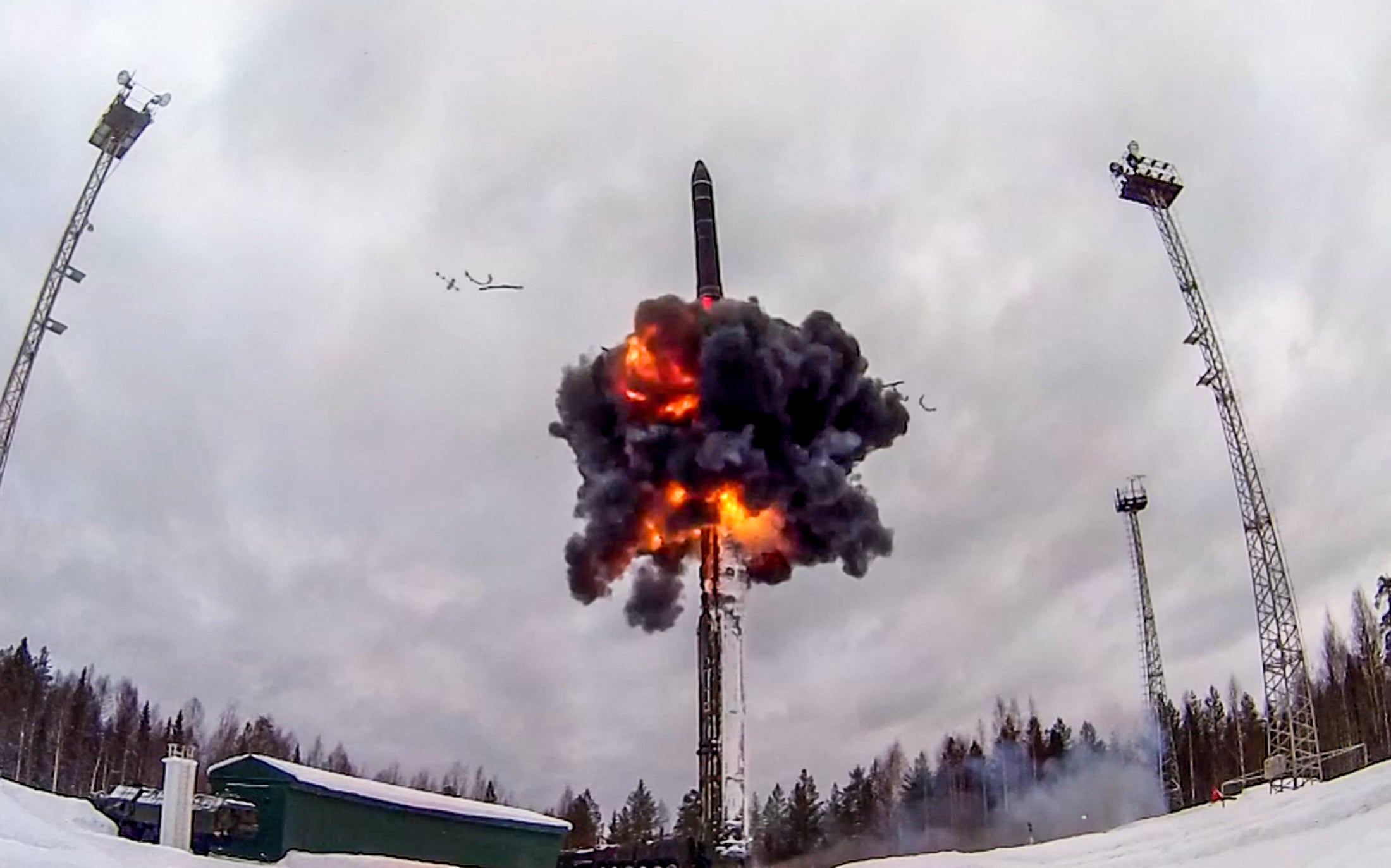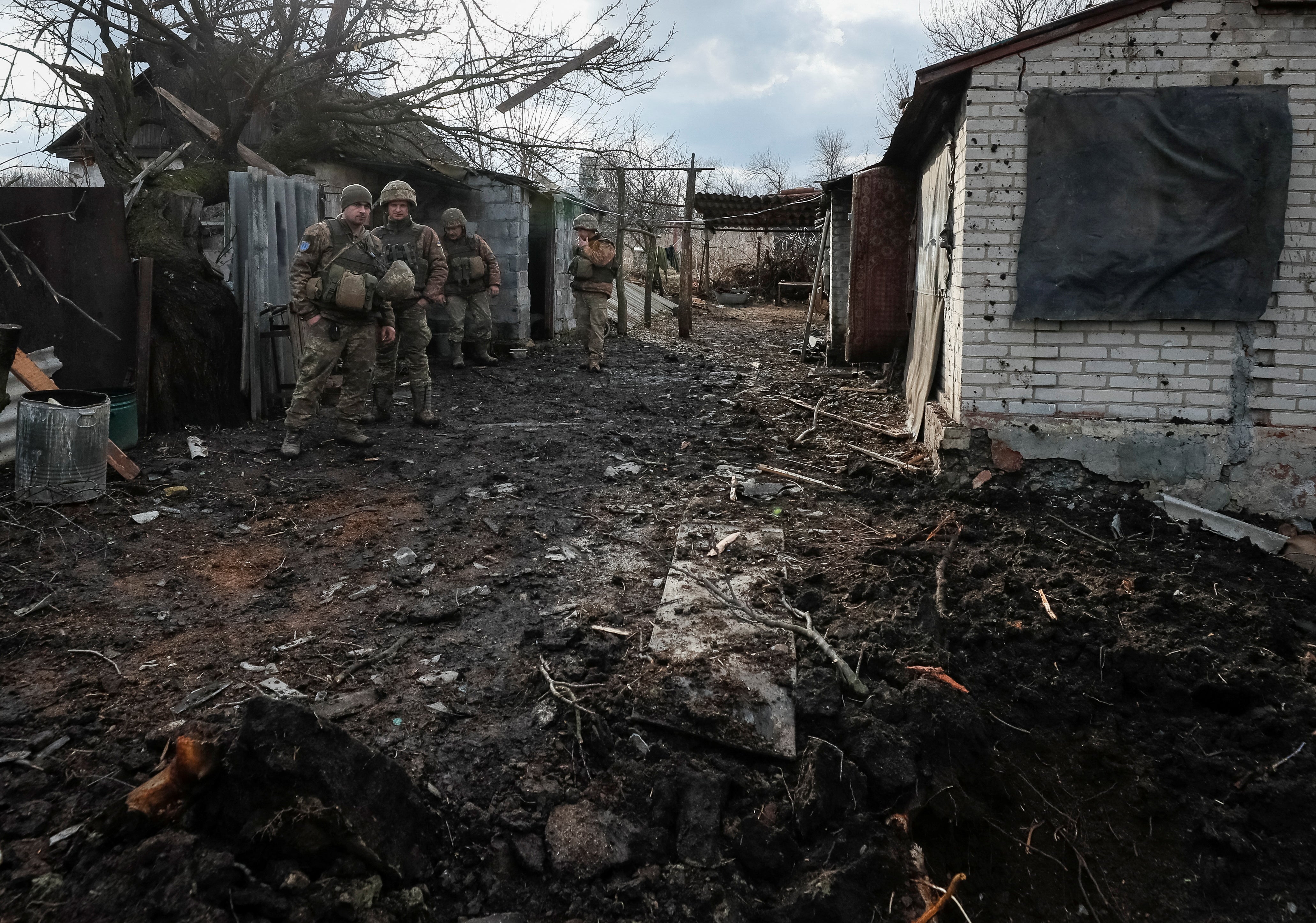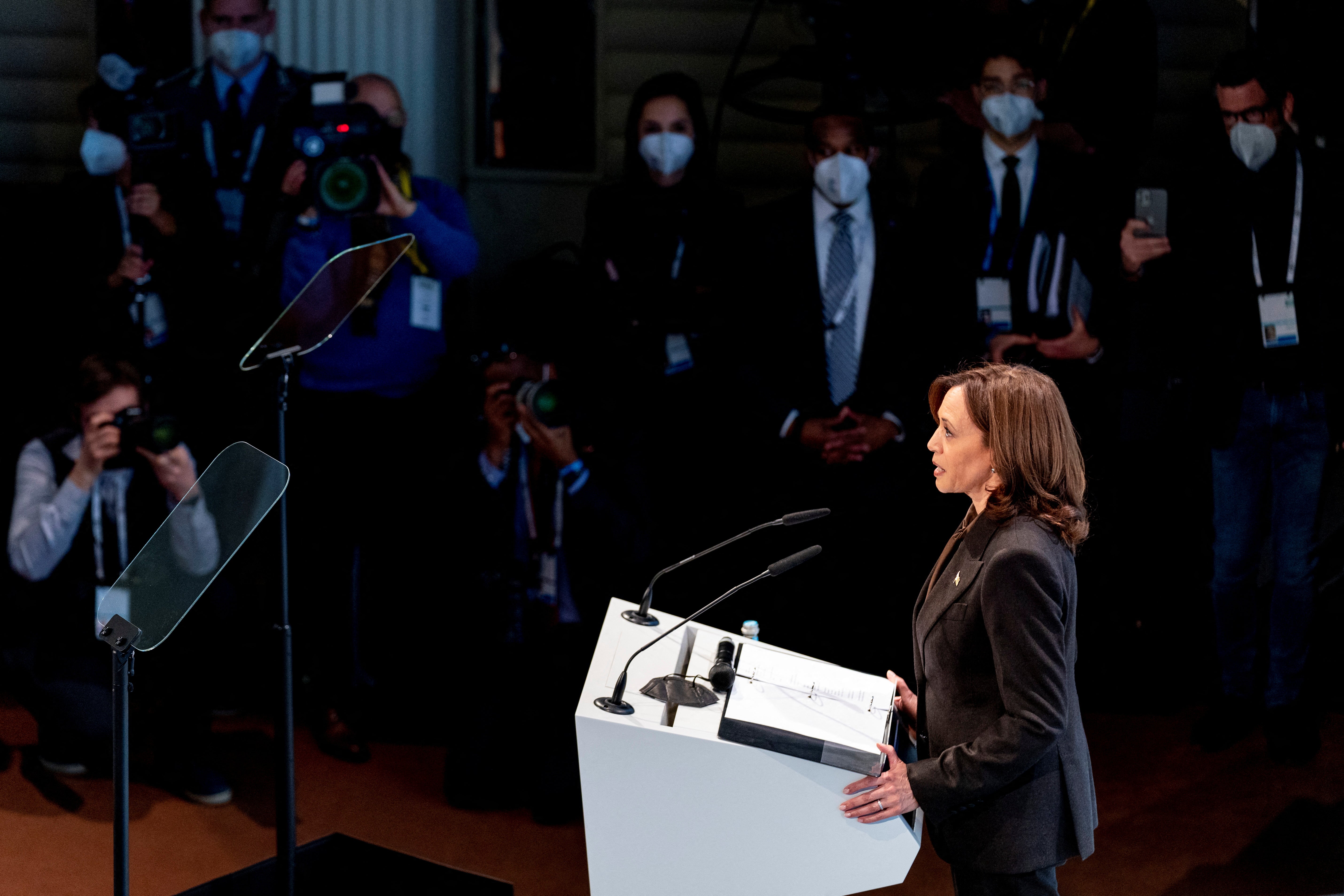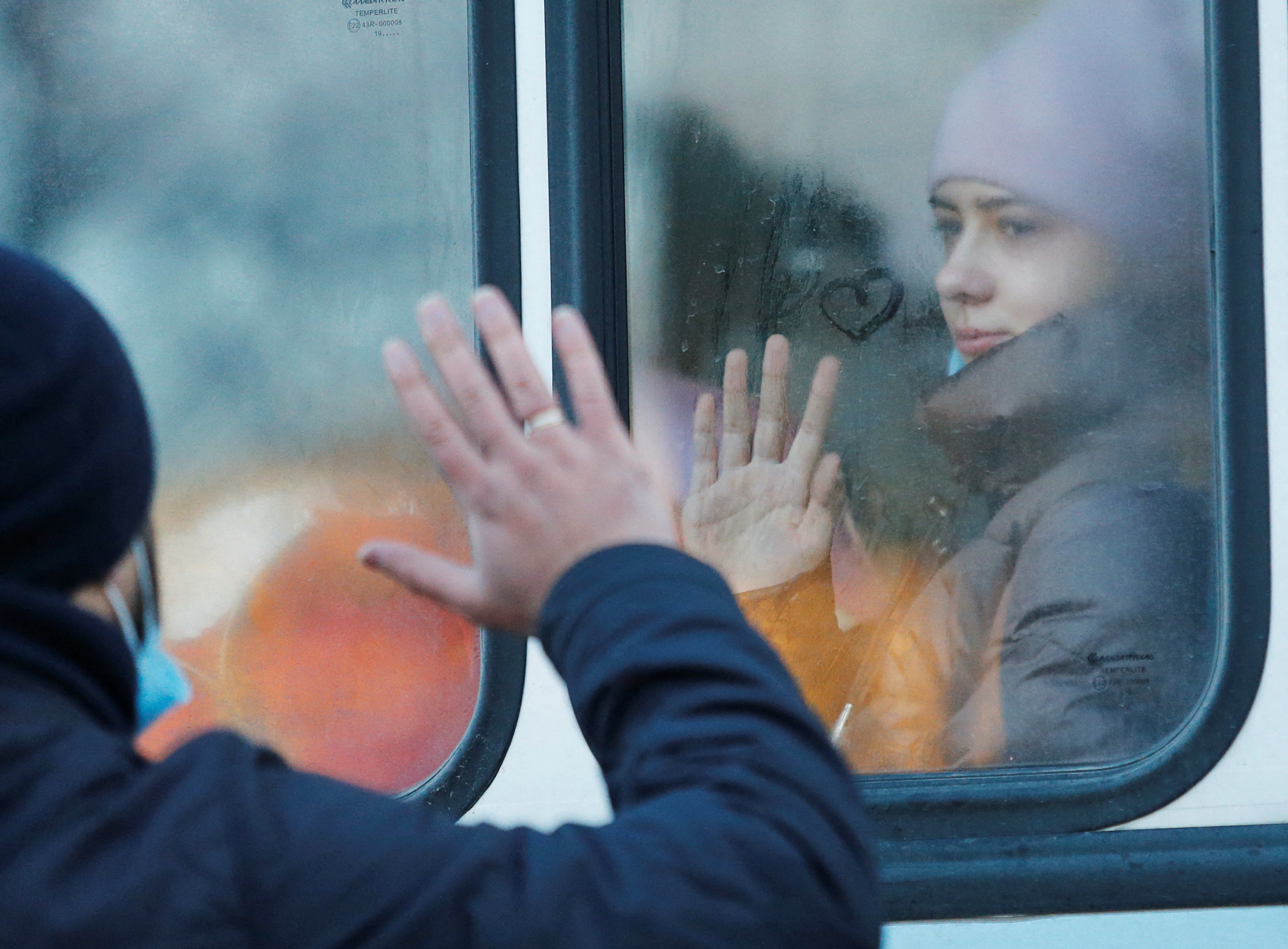West fears Russia is on ‘brink’ of invasion as violence escalates in eastern Ukraine
The US and UK warn that Moscow could invade in a matter of days as tensions rise in eastern Ukraine
Your support helps us to tell the story
From reproductive rights to climate change to Big Tech, The Independent is on the ground when the story is developing. Whether it's investigating the financials of Elon Musk's pro-Trump PAC or producing our latest documentary, 'The A Word', which shines a light on the American women fighting for reproductive rights, we know how important it is to parse out the facts from the messaging.
At such a critical moment in US history, we need reporters on the ground. Your donation allows us to keep sending journalists to speak to both sides of the story.
The Independent is trusted by Americans across the entire political spectrum. And unlike many other quality news outlets, we choose not to lock Americans out of our reporting and analysis with paywalls. We believe quality journalism should be available to everyone, paid for by those who can afford it.
Your support makes all the difference.The West has warned that Russia is on the brink of starting a war as fears rise that escalating violence in eastern Ukraine could be used as a pretext by Moscow to justify invading its neighbour.
Western leaders including US vice president Kamala Harris and British prime minister Boris Johnson met at the Munich Security Conference on Saturday amid reports of explosions in the parts of eastern Ukraine that are controlled by Moscow-backed rebels, and just across the border inside Russian territory.
The situation in two self-proclaimed pro-Russian republics in Ukraine’s Donbass region is on a knife-edge after rebel leaders declared a full mobilisation of their forces and asked civilians to evacuate to Russia following increased shelling in recent days, which the Ukrainian government and the separatist rebels blame on each other.

Meanwhile, Russia’s strategic nuclear forces held exercises overseen by president Vladimir Putin on Saturday - during which the Kremlin said it had successfully test-launched hypersonic and cruise missiles at sea.
Speaking at the conference in Munich, Mr Johnson said Europe is at "a very dangerous moment" and stands on "the brink" of a possible war with Russia.
"I think it would be an absolute disaster be disaster for Europe, a disaster for Ukraine, and a disaster, certainly for Russia, if there were to be an invasion,” he said in a speech.
Ms Harris said the United States would reinforce Nato’s eastern flank and warned that Moscow would pay a high political and economic price for any attack on Ukraine.
“National borders should not be changed by force,” she told the conference. "We have prepared economic measures that will be swift, severe, and united.”
Prior to the conference, US defence secretary Lloyd Austin said Russian forces were beginning to "uncoil and move closer" to the Ukrainian border, while US president Joe Biden told reporters that he was “convinced” Mr Putin had made the decision to invade in the coming days.
Russia denies it plans to attack but has demanded its own security guarantees from Nato and the United States, which include a permanent bar on Ukraine joining the alliance.

Nato secretary-general Jens Stoltenberg said in Munich on Saturday that Russia knew that alliance could not meet its demands.
While Moscow says it is pulling back troops from the border, the West insists the build-up is mounting and Washington believes there are up to 190,000 Russian soldiers surrounding Ukraine on three sides.
New helicopters and a battle group deployment of tanks, armoured personnel carriers and support equipment have deployed in Russia near the border, according to US-based Maxar Technologies, which tracks developments with satellite imagery.

A current focus of the crisis is in eastern Ukraine, where Russian-backed separatists claim there is the threat of an imminent attack by Ukrainian forces. Kiev has strongly denied the accusation and Western security officials believe Moscow could be looking to create an excuse to invade with a so-called false flag operation.
The Ukrainian military said two soldiers were killed and four wounded in shelling by the Moscow-backed rebels in the region on Saturday.
A group of lawmakers and foreign media visiting the conflict zone came under fire and had to be evacuated to a shelter, according to a spokesman for Ukrainian President Volodymyr Zelensky’s party.
Separatist officials accused Ukraine of shelling the rebel-controlled areas and said they had to respond accordingly.
Local authorities in southwest Russia said that a shell hit a house in a village near the Ukrainian border but that no one was hurt, according to the TASS news agency. Kiev has denied reports of shelling Russian territory and said its forces were not firing.
In Ukraine, concerns are growing over Mr Putin’s plans and the West’s ability to prevent a Russian invasion.

Speaking at the conference in Munich, Mr Zelensky said the global security system was "almost broken” and urged world powers to draw up new protection guarantees for his country.
The leader received a standing ovation before starting a speech in which urged the world to learn the "terrible lessons from history", and scolded the international community for what he said was the appeasing of Russia.
"The rules that the world agreed on decades ago no longer work. They do not keep up with new threats. Not effective for overcoming them. This is a cough syrup when you need a coronavirus vaccine," he said.
"The security system is slow. It crashes again. Because of selfishness, self-confidence, irresponsibility of states at the global level.”
Mr Zelensky also called on Nato members to be honest about whether they wanted Ukraine to join the alliance or not.
After meeting with Mr Johnson on the margins of the conference, the Ukrainian president said the pair had discussed “joint next steps” and “remained united in the pursuit of de-escalation through diplomacy”.
Echoing the prime minister’s insistent speech to the conference that Russia “must fail and be seen to fail” if it invades Ukraine, the two leaders were also said to have agreed that an invasion would be fiercely resisted.
This came as The Guardian reported that Western nations were in secret talks on how to arm a resistance if the Kiev government is brought down, days after US outlets reported that White House national security adviser Jake Sullivan had suggested the Pentagon was willing to do so.
Meanwhile, it emerged that GCHQ director Sir Jeremy Fleming has told the heads of organisations involved in the UK's critical national infrastructure to strengthen their cyber defences, as a senior intelligence official urged other organisations to take “pre-emptive” action to protect themselves.
Writing in The Telegraph, home secretary Priti Patel said that, “as this crisis” develops, the government expects to see “information warfare and cyber attacks aimed at the West”, and is poised “to identify and tackle Russian information aggression targeted at the UK”.
Additional reporting by agencies




Join our commenting forum
Join thought-provoking conversations, follow other Independent readers and see their replies
Comments